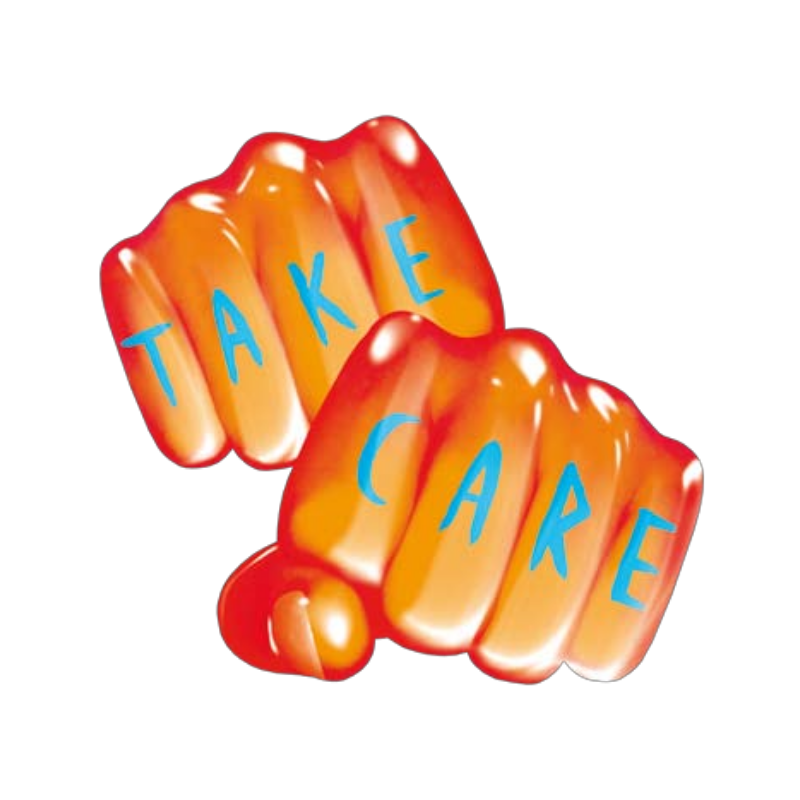Tender Provocations of Hope and Fear
Tender Provocations of Hope and Fear (TPHF ) is an evening of performances, lectures and project presentations about experiences of fear and/or hope. Connected to a larger project called “The Art and Culture of Hope” developed by Huber and Leadbitter, TPHF is ever evolving in each location and for the Take Care symposium, Jessica Huber, James Leadbitter and Jeremy Wade have invited disabled artists and activists to share their experiences. Jessica and James are joined by Touretteshero, Kim Noble, Mondkalb aka Rebecca Maskos and Matthias Vernaldi, the vacuum cleaner, Neve Be and DJs from Hamburg’s Station 17.
J&J (Jessica Huber & James Leadbitter):
Tender Provocations of Hope and Fear
Evening ticket only for the performance 13,00 €, reduced 8,00 €
Friday, November 10th 2017, 20.00, HAU2 – Buy now
Saturday, November 11th 2017, 20.00, HAU2 – Buy now
Art Activism and the Politics of Austerity
The politics of austerity has always been part of the neoliberal game where lip-service is paid to words or phrases such as „community,” “public interest,” “individual responsibility,” “tough choices,” or “necessary sacrifices,” whilst the real message is often about minimising active and collective responsibility towards the aged, sick and disabled. Art and activism have the power to bring that which remains invisible into the public realm in an irreversible way. Eva Eggermann, Robert McRuer, Liz Crow, Michael Zander and Rebecca Yeo will foreground the politics of austerity and detail some past and present crip resistance in their work, revealing how “Crip Art and Activism Practices intervene and expand the limitations of the world of imagination.”
Sessions:
Eva Egermann
In Defense of Crip Art and Activism
Friday, 10. November, 17:15 – 17:45
Liz Crow and Robert McRuer
Crip Times: Art, Activism, and the Politics of Taking Care
Friday, 10. November, 17:45 – 19:00
Rebecca Yeo
Using public art to bring out and promote the rights of disabled asylum seekers
Saturday, 11. November, 10:30 – 11:45
Michael Zander
Austerity Politics in Germany
Saturday, 11. November, 10:30 – 11:45
Madlove
“A lot of psychiatric hospitals are more punishment than love… they need some Madlove.” – the vacuum cleaner
Madlove is a project by the vacuum cleaner and Hannah Hull that reimagines what a safe place to go mad could be like, by asking people with lived experience what their needs are. The work has become manifest by engaging with many people in many types of hospitals in the UK. As Johanna Zinecker states, Madlove is a “utopian stance and artistic/participatory design of care.” Where much psychiatry has actively created and reinforced normativity, the anti-psychiatry movement and its current legacy continue to create spaces for mad pride and neurological diversity within society. The question then arises: how to celebrate and vitalise difference in the face of that which seeks to flatten people out into sameness? Madlove is where art, activism, social work and care chart out a space for mad and neuro-diverse people to thrive, live and celebrate their madness with love. the vacuum cleaner, Hannah Hull, Eliah Lüthi and Johanna Zinecker, with Simon Geils of InklusionNetzwerkNeukölln and with Lena Grünberg and Michaela Maxi Schulz from the “Behindert und verrückt feiern“ Disability & Mad Pride Parade Berlin, will share their work of resistance, creativity, world-making and the celebration of difference.
Sessions:
the vacuum cleaner and Hannah Hull
Madlove – A Designer Asylum
Saturday, 11. November, 14:45 – 15:15
Eliah Lüthi
(Re_) learning Mad Self Love
Saturday, 11. November, 15:15 – 16:00
Hannah Hull and James Leadbitter
Madloving: Working with Madness
Saturday, 11. November, 16:00 – 16:30
„behindert und verrückt feiern“, InklusionNetzwerk Neukölln, Johanna Zinecker
Looking for Madlove in Berlin
Saturday, 11. November, 17:00 – 18:00
Coalitions of Care
To what extent can experiences of inter-dependence and the politics of vulnerability serve as models for ethical togetherness and resistance? From the perspective of organising her collective care for 18 years, Loree Erikson will speak about care, disability justice and shared vulnerability as sites of resistance. Matthias Vernaldi will chart the possibilities and politics of care/assistantship when the person receiving care makes the terms of engagement rather than the person providing care. In a letter to a doctor asking, “how can we heal,” Johanna Hedva, author of “Sick Woman Theory”, asks “when oppression manifests as sickness in our bodies, could healing be a form resistance and social justice?” Finally, Neve Be asks “How does intimacy affect the value of labor” when an anarchist with Arthrogryposis eventually caves in to accessing state funded care? Coalitions of care is an event where four disability theorists, activists and queers come together to talk shop about collaborative environments, the politics of assistance, care beyond exchange value, relational ethics and justice for disabled people.
Sessions:
Loree Erikson
What does interdependence look like?
Sunday, 12. November, 11:00 – 12:15
Matthias Vernaldi
Personal assistance and the limits of care coalitions
Sunday, 12. November, 11:00 – 12:15
Johanna Hedva
Letter to a Young Doctor
Sunday, 12. November, 14:15 – 15:30
Neve Be
The Sticky, Sanguineous, Politics of Intimacy
Sonntag 12. November, 14:15 – 15:30
Mondkalb
Evaluation panel
Sonntag, 12. November, 16:45 – 17:30
